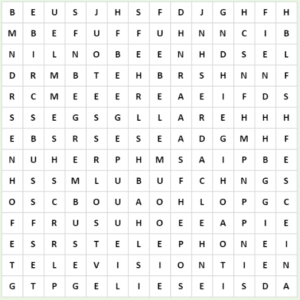01 March 2019
The spellings this week are all contracted words. They all have the apostrophe in the same place: instead of the o in not.
When writing these contracted words, children should leave the letters either side of the apostrophe unjoined but there shouldn’t be a big space between the letters.
| do not don’t |
| can not can’t |
| will not won’t |
| did not didn’t |
| have not haven’t |
| has not hasn’t |
| does not doesn’t |
| must not mustn’t |
01 March 2019
This week, our spellings are Year 1 high frequency words. These are common words and appear very often in written texts.
| were |
| there |
| what |
| when |
| out |
| oh |
01 March 2019
We continue to work our way through the Year 5/6 spelling list. Create ways for you to remember how to spell these words and generally practise using the strategies in the back of your homework book. Don’t forget to try adding prefixes and suffixes to the words. Spelling practice is best done little and often so make sure you come back to the spellings at least three times in the week. Date your practice and ask an adult to sign it to show that you’re practising regularly. There will be a test on Friday 2 March.
- parliament
- persuade
- physical
- prejudice
- privilege
- profession
- programme
- pronunciation
- queue
- recognise
- recommend
- relevant
- restaurant
- rhyme
- rhythm
08 February 2019
|
Year 5 Statutory Spellings |
||||
| This week’s spelling list is formed using words that are from the Year 5/6 statutory spellings list. All children need to know these words by the end of year six. If you don’t know what any of the words mean, find out! Can you show them in a creative way? Can you write them in your own sentences? Can you use them in a list with semi colons? | ||||
| accommodate | awkward | correspond | explanation | necessary |
| privilege | relevant | shoulder | system | vehicle |
08 February 2019
This week, our spellings are Year 1 high frequency words. These are common words and appear very often in written texts.
| could |
| down |
| from |
| have |
| here |
| him |
08 February 2019
The spellings this week are all words which have an a which makes an o sound (as in ‘hot’). This is a common spelling after w or qu.
| want |
| watch |
| wander |
| squash |
| wand |
| wasp |
| quality |
| swallow |
08 February 2019
This week, spelling homework continues with the prefixes -sub and -tele. There is a word search to complete. For an extra challenge, draw a picture or write a sentence for each word. Check for sense!

submerge / subscribe / subheading / submarine / television / telephone / telescope
We are learning our 3 times tables.
08 February 2019
Create ways for you to remember how to spell these words and generally practise using the strategies in the back of your homework book. Don’t forget to try adding prefixes and suffixes to the words. Spelling practice is best done little and often so make sure you come back to the spellings at least three times in the week. Date your practice and ask an adult to sign it to show that you’re practising regularly. There will be a test on Friday 15 February.
- language
- leisure
- lightning
- marvellous
- mischievous
- muscle
- necessary
- neighbour
- nuisance
- occupy
- occur
- opportunity
01 February 2019
This week’s spelling is on the prefixes ‘sub’ and ‘tele’. The list is formed of words Year 3 suggested on Friday. Please practise these spellings, and discuss their meanings, ready for a test on Friday 08 February 2019.
submerge / subheading / submarine / subscribe / television / telephone / telescope
We are learning our 3 times table.
01 February 2019
This week, our spellings are some high frequency words. These are common words and appear very often in written texts.
| about |
| asked |
| back |
| called |
| came |
| come |